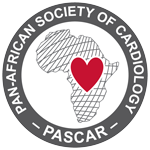Concerned about the drastic decrease of activity in Dutch interventional cardiology units, Prof Jan J Piek encourages cardiac patients to not ignore their symptoms
Over the last few weeks, the same alarming message has been echoing all around the world as the coronavirus outbreak has been spreading relentlessly across the continents: “Where have the cardiac patients gone?”
Cardiologists have been getting seriously worried as they’ve witnessed a drastic fall of the volume of consultations and hospitalisations of patients suffering from acute coronary syndromes (ACS) or having a heart attack. In the South of Europe, the reduction rate reported by Italy, Spain and Portugal has reached up to 75%.

The main reason put forward to explain this paradigm shift is people with cardiac problems stayed massively at home due to fear of getting contaminated if they went to hospital and rather ignored their symptoms for few days hoping these would gradually ease off.
Unfortunately, the first hours following a heart attack are crucial to limit the damage; with an optimal treatment, the in-hospital mortality is 2% whereas it can reach 6.7% when the treatment received is sub-optimal. In case patients decide to not go to hospital, the risk of dying from a heart attack increases to 10-15% in the following months.
The Netherlands has not been spared by the phenomenon. Earlier this month, Prof Jan Jacob Piek – a renowned interventional cardiologist leading the Acute Cardiac Care department at the Amsterdam University Medical Centre and also co-Chairman of the Stent – Save a Life! global initiative – decided to communicate nationwide on the topic reaching out to cardiac patients via the newspaper channel. Indeed, his fear was the number of deaths from cardiovascular disease might reach a level equivalent to the one resulting from the coronavirus crisis although nobody can predict yet how many people will die from the epidemic.
Approximately 200,000 people visit the Dutch emergency services every year and around 38,000 die from cardiovascular disease, the second cause of mortality in the country. A reduction of ACS patient admissions in hospital is synonymous with thousands of patients about to have a heart attack – or at high-risk – and could potentially trigger an increase of the number of deaths by a few percentage points, which could ultimately result in a similar volume of people dying from the coronavirus.
With about 50% less patients presenting for acute coronary syndromes or a heart attack in the country’s hospitals since the beginning of the outbreak, the objective of Prof Jan Piek’s interview was to warn about the risk encountered when ignoring cardiac symptoms and staying at home. Although emergency departments have been less busy due to a reduction of the volume of road traffic accidents, Prof Jan Piek didn’t endorse the idea that the risk of heart attack was lower because cardiac patients were confined and therefore less stressed working from home. In fact, he thought it should rather be the opposite.
Fully aware that cardiac patients belong to the high-risk groups – and should therefore be very careful and limit their movements – and they fear to get contaminated or to overload the hospital services by going to the emergency care, he also wanted to pass on a reassuring message. On one hand, hospitals still have the place and capacity to take care and treat cardiac patients; on the other one, specific measures are in place in the hospital admission department to detect people affected by the Covid and separate the influx of positive and negative patients thus limiting the risk of contamination to a minute likelihood.
According to Prof Jan Piek, the risk to catch the coronavirus is greater outside than in hospital. His recommendation to cardiac patients is to not stay at home but call the doctor, the emergency services or the cardiac specialist right from the symptom onset to ensure the best possible outcome.
In the first week after the publication of his interview in 2 national newspapers, Prof Jan Piek declared he could already witness a slight inverse trend in cardiac patient consultations.
An initiative worth following by other countries…
References
- https://www.volkskrant.nl/nieuws-achtergrond/hartpatienten-blijven-massaal-weg-door-corona-angst-artsen-vrezen-voor-levens~b59384de/
- https://www.parool.nl/nederland/hoogleraar-hart-en-vaatziektes-straks-net-zo-dodelijk-als-corona~b49a63a5/






